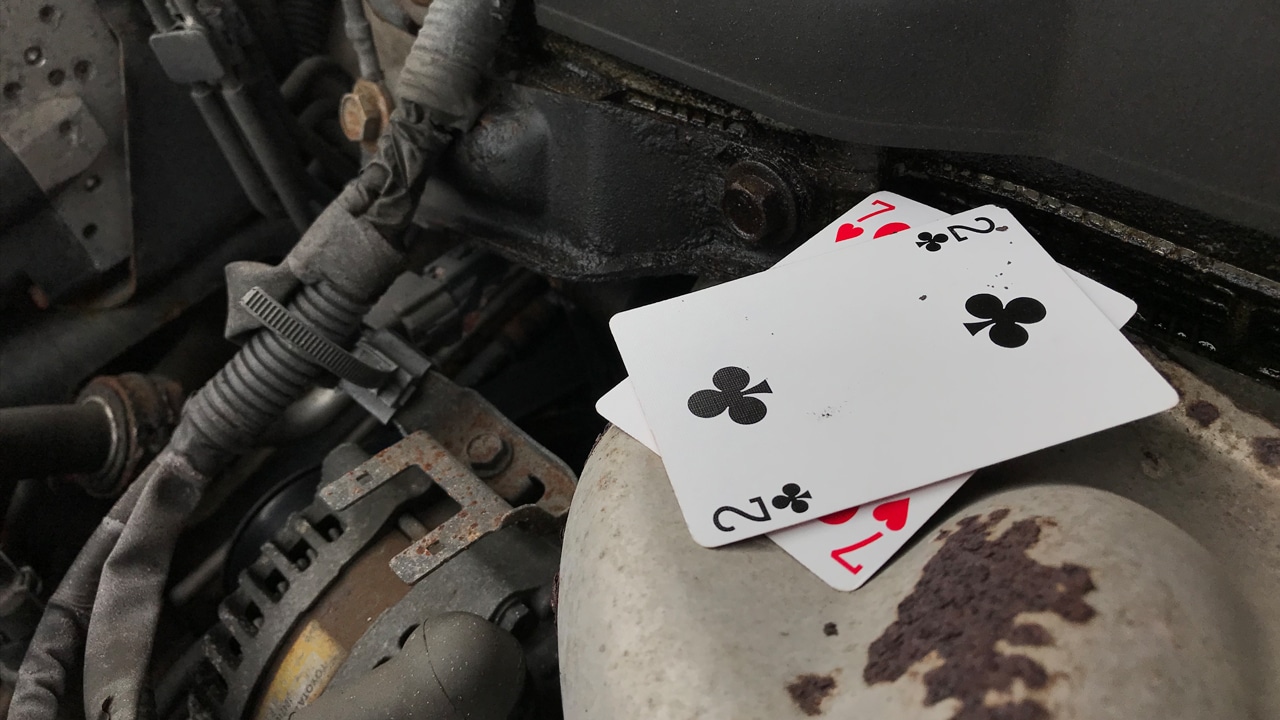
Towards the beginning of the online poker boom, my main game was $25/$50 Limit Hold’em on a European site that is now nothing more than a footnote in poker history. The platform was notoriously unstable, so I wasn’t surprised when I attempted to login one evening and got a cryptic message indicating that the site wasn’t going to let me. I was, however, extremely surprised when I checked my e-mail to discover that my account had been suspended. It took several stressful months to figure out what had happened and convince the site to give me back the five-figure sum they had frozen.
The situation arose thanks to a vocal coalition of players who had concluded that collusion was a major problem on the site and who made a lot of noise on the site’s forum. This had persuaded the owners to install “anti-collusion software.” It worked in an amusing way. Players found to be frequently seated together had their accounts suspended and funds frozen. For months.
So who did this impact? Many people playing $25/$50 Limit Hold’em, for the simple reason that only one or two tables of the game ran at the same time and thus all the regs had no choice but to constantly sit with each other.
Was there collusion on the site that warranted these draconian measures? I never saw anything obvious, but if there were colluders they were not going to be thwarted by the bone-headed methods that the site put in place. And the widespread howling about online poker being rigged by the sites to maximize the rake, and super-user accounts and whatnot, invariably originated with players who simply could not believe they would lose so badly in an honest game.
It seemed obvious to me that, having got into such a profitable business, the poker sites would be insane to engage in any form of skulduggery. It was in their crystal clear interests to keep the games fair and to engage in squeaky clean financial practices.
So once I had finally retrieved my funds from the small Euro site, I felt it was wise to move my bankroll to more reputable operations. Like Full Tilt and Ultimate Bet.
(Sad Trombone.)
Let’s take a broader view of this. You buy a used car. Maybe the odometer has been wound back. After a few months the transmission feels squidgy so you take it to a mechanic who tells you it needs a new clutch. Except all it needs is a five dollar valve in a transmission fluid line. With your new clutch installed, you rear-end someone at four m.p.h. and crack a twenty buck light fixture on their car. Three weeks later your insurance company tells you they settled a claim for $1876.29.
Cheating, whether personal or institutional, is a fact of life. That said, I’m not advocating that we throw our hands in the air and accept it. In the specific case of poker, we have two responsibilities: to protect ourselves from cheating and, more difficult, to help create an environment that limits the opportunities for cheaters.
So what are the current risks for us as poker players and how do we protect ourselves?
In the online realm, our painful and embarrassing history suggests we must first be wary of the sites themselves. In the U.S. only a tiny fraction of us are able to play on regulated sites. I’m not suggesting regulation is a panacea, but in my opinion it does provide some baseline level of confidence that site owners will not abscond with players’ funds.
Are regulated online games free of collusion? I highly doubt it. But if you’re a poker player who is also not mechanically minded, your odds of getting cheated playing online poker are probably comparable to getting overcharged by a dishonest car mechanic.
How do you minimize risk? Most importantly, you need to be vigilant. Many years ago David Sklansky suggested collusion in live poker was probably rare since doing it well was difficult, but that fundamentally it was up to players to police their own games. The online environment has advantages and disadvantages in this regard. Collusion is far easier and potentially more damaging online, but the fact hand histories are recorded with all hole cards known makes detecting cheaters easier. At least this is the case if online sites choose to do so.
My personal preference is simply to minimize my exposure to forms of online poker in which collusion is most likely to occur. I rarely play cash or sit-n-goes and mostly focus on MTTs.
When I was playing around 1500 hours live a year, I’d see obvious collusion on average about once every six months and tournament soft playing far more often than that. If something smells wrong in a live cash game, my policy has always been to leave and share my suspicions with floor. I’m hesitant to go into details of what tips me off for fear it’ll encourage offenders to become more devious and harder to detect. However, if a couple of players arrive together and sit in the same game, start texting furiously with live cards, or engage in long and meaningful stares that are unlikely to be romantic in origin, they have my attention. There are also forms of poker that are plagued by this in Vegas thanks to unscrupulous locals. If you play split-pot games you’ll likely be aware of the betting patterns that can tip you off to foul play.
As to live tournaments, soft playing is one common problem. At the lower buy-ins it is frequently a relatively benign one since it’s typically carried out by friends being… well, friendly, who don’t have the sophistication to realize they’re breaking any rules. In Vegas a far bigger problem in the shallow end of the pool is the freeroll circuit. Action trading drives some of the issues here. More mind boggling are multiple incidents over the last few years of players removing high denomination chips at the end of a freeroll and feeding them back onto the table at subsequent ones. Again, the only real solution is to play in rooms which audit their tournament chips appropriately and to make it very clear to cheaters that they are vile scumbags.
Which brings us neatly to Mike Postle.
As you may have inferred either from reading the above or because you’ve met me, I am a complete idiot when it comes to anything practical including automotive repair. A few years ago when I could still see well enough to drive, my Mitsubishi Eclipse started making a funny noise that I couldn’t fix by turning up the volume on the CD player. My detailed inspection revealed the source of the problem was “underneath” rather than “up front” so I took it to the nearest import repair place and told them I figured there was a problem with the exhaust.
A couple of hours later they told me it needed a something-or-other and parts and labor would be about $250, but they had to order the part and would phone when it was in. Fortunately they never did, so I took it somewhere else. The mechanic fired it up, nodded his head, and three minutes later had replaced a bolt that had rusted out with a new one and charged me eight bucks.
I thanked him sincerely and told him about the estimate from one of his competitors. And I’m telling this story because to me this is the interesting bit. The mechanic’s face turned an interesting shade of crimson, not because he was pissed he could have gotten another $242 or so out of me, but because he was genuinely furious about someone in his profession cheating a customer. “Those cowboys make us all look bad,” he growled.
But there’s an important difference between poker and car repairs. For many people, owning an automobile is something they feel they have to do. And automobiles occasionally need repairs. There is no doubt that some car mechanics are cheats, but the frequency would have to get a whole lot higher for the bulk of the car-driving population to learn how to fix their own vehicles.
Poker isn’t like that. Outside of professionals, many people who play it simply enjoy games, or they enjoy gambling. Or they enjoy “free” drinks in a casino or the banter at the table. And they can find free drinks and banter and gambling all over the casino floor and not just in the poker room. Which is why I am not simply saddened or shocked by the Mike Postle cheating scandal. I am mad as hell.
How about you?


With all this going on my biggest fear is that the poker community will have to pay for this. This whole thing has created a lot of buzz. Bad buzz. And I fear the hammer of government regulation coming in to overcompensate.
It’s certainly incredibly frustrating that one of the few growth areas of poker has gotten hit with this. I doubt it’ll have much government impact beyond possibly Cali asking its Gaming Commission whether it might like to get a little more pro-active. The precise how of the cheating in this case isn’t 100% clear, but there’s some evidence it would be much harder to pull off in Nevada.